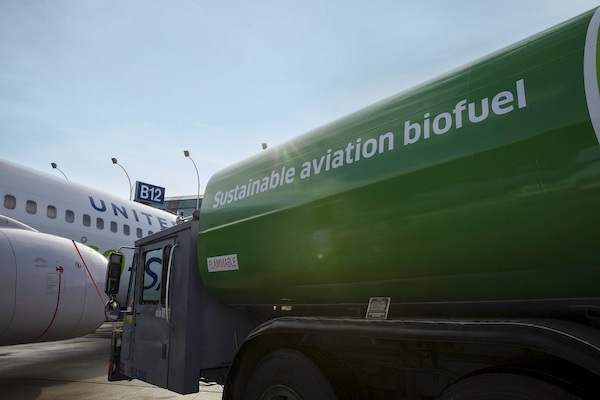The International Air Transport Association (IATA) is setting up a sustainable aviation fuel (SAF) registry to enhance emission reduction tracking. This development comes as governments are urged to intensify their support for decarbonising the aviation sector.
The registry aims to streamline accounting practices and foster a more transparent and accountable system for emissions reductions, encouraging the adoption of SAF across the industry.
IATA is aiming to accelerate the use of sustainable aviation fuels by establishing a comprehensive registry. This registry will focus on “authoritatively accounting” and reporting emissions reductions resulting from SAF usage. Seventeen airlines, one airline group, six national authorities, three equipment manufacturers, and one fuel producer are already backing this endeavour. The registry is scheduled for launch in the first quarter of 2025, reflecting the growing industry commitment towards sustainable operations.
IATA’s Director General, Willie Walsh, highlighted the interest in SAF, noting the potential it holds for significant impact. He stressed that while the interest is high, existing concrete plans are insufficient, urging governments to implement effective policies. Governments have committed to a 5% reduction in CO2 emissions through SAF by 2030 and achieving net-zero by 2050.
Investment in SAF is gaining momentum, with potential exceeding initial estimates as investor interest grows. Although there is a typical three-to-five-year lag from planning to production, projects announced by 2027 could be operational by 2030, provided they reach final investment decisions.
The establishment of such a registry is crucial for airlines to verify the ecological benefits of the SAF they purchase. It would allow corporate clients to accurately account for Scope 3 emissions, offering transparency and fostering a global market for SAF.
Walsh advocated for incentives to enhance renewable energy facilities, strengthen feedstock supply chains, and allocate a significant portion of renewable output to aviation. He called for co-processing renewable feedstocks in crude oil plants and accelerated approvals for diverse methodologies to enhance SAF production.
A synergistic policy approach is essential to achieving the desired production levels. By leveraging all possible strategies, sufficient SAF quantities could be realised, paving the way for an environmentally sustainable aviation future.
The SAF registry initiative by IATA marks a significant advancement in aviation’s sustainable transformation, highlighting the collective effort required among industry stakeholders. Governments, airlines, and fuel producers must work in harmony to realise the full potential of SAF as a viable solution to aviation’s decarbonisation challenge.
The establishment of the SAF registry is a pivotal development in promoting sustainable aviation. It underscores the necessity for collaborative efforts across the industry to meet carbon reduction goals. A holistic approach involving policy support, technological innovation, and industry commitment is crucial for the success of this initiative.

